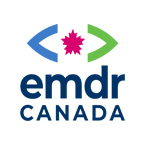EMDR therapy is a well-researched treatment that has had highly successful outcomes for many people with post-traumatic stress disorder (PTSD) and several other mental health conditions. But can EMDR also help people with complex post-traumatic stress disorder (C-PTSD)?
It’s an understandable question! EMDR, after all, involves “reprocessing” a difficult memory – and since those with C-PTSD have faced repeated trauma, they may have a lifetime of memories and emotions to sift through. Fortunately, a growing number of studies suggest that people with C-PTSD may find great success with EMDR.
The specific answer on whether EMDR will work for you (or your client) depends on who you are, where you are in your healing journey, and what EMDR approaches are used along the way. Here is some helpful information on how EMDR can help support people with C-PTSD, and the approaches that can be taken to improve outcomes.
What is Complex Trauma/CPTSD?
According to the World Health Organization:
“Complex post-traumatic stress disorder (Complex PTSD) is a disorder that may develop following exposure to an event or series of events of an extremely threatening or horrific nature, most commonly prolonged or repetitive events from which escape is difficult or impossible.
Unlike PTSD, which can result from a single traumatic event, C-PTSD is typically associated with chronic trauma, such as ongoing abuse, neglect, or violence, and often occurs in situations where there is an imbalance of power. C-PTSD is characterized by severe emotional dysregulation, difficulty with interpersonal relationships, negative self-perception, and often a deep sense of guilt or shame.
In our recent interview with Dr. Collette Smart, she noted that “complex trauma generally happens in the context of relationships.” There are many depictions of this in popular culture, where characters suffer from mental health issues following difficult early childhood experiences or abusive romantic relationships. Our relationship with our environment or society at large can also cause complex trauma. In Canada, therapists may find that their clients have had repeated negative experiences as a result of their identities – their race, sexuality, gender identity, disability, or other differences. WHO also notes that war, captivity, and genocide are also common causes of C-PTSD.
In short, there are many combinations of experiences that one may have that would result in C-PTSD. A person’s experience in the world is multi-faceted, and complex trauma can come from any combination of experiences, including (but not limited to) an abusive relationship, a family dynamic, or even repeated distress caused by the wider society/environment. In the video below, EMDR therapist David Archer explains these different layers in a recent interview, something he describes as “looking at the whole person” (you can also read our interview with Archer here).
Understandably, the healing journey for those with these difficult experiences is not always linear or easy, and EMDR is often something that people consider as they navigate these issues.
How does EMDR work for people with CPTSD?
EMDR therapy helps people process traumatic memories by using bilateral stimulation (such as eye movements or tapping) while recalling the trauma in a safe, therapeutic environment. For individuals with C-PTSD, the process often involves addressing a series of interconnected traumatic memories, or the beliefs and feelings that resulted from these memories, rather than a single event. This can mean longer treatment durations, more sessions, and a tailored approach to the unique needs of each individual.
What are some Best Practices and Techniques for Treating Complex Trauma with EMDR?
- Understand that it may take longer. EMDR can sometimes treat people dealing with a single traumatic incident in only a couple of sessions, depending on factors such as their readiness and the relationship between the client and therapist. But, with Complex PTSD, there may be a few different areas that one needs to work on, so additional sessions are often needed.
- Spend careful time on Preparation & Stabilization (Phase 2). Solid, mindful preparation is key to success when dealing with C-PTSD. It is important that people feel safe, have a sense of agency, and are prepared with strategies to manage distress in later phases. The Safe Place Exercise and careful Resource Development and Installation are important tools to prepare C-PTSD clients for what is ahead. The below video from EMDR Canada member Dr. Colette Smart provides some insight into why preparation is so key for individuals with C-PTSD.
- Take time to establish reliability and trustworthiness. In any therapeutic relationship, building a trusting relationship is important. People with C-PTSD have often experienced violations of trust and are sensitive to feeling like they have lost control or power in a situation, so taking the time to really build this relationship before jumping into traumatic memories is key to success. Therapists should also be sure to be consistent and reliable even in small ways, such as always starting and ending sessions on time, to help establish trust for those who have dealt with volatile and unpredictable relationships in the past.
- Be mindful of dissociative symptoms and emotional regulation. When treating C-PTSD, dissociative symptoms can be more common. This is one of the reasons it is important to work with a trained EMDR therapist who knows how to screen for dissociation and will have a plan to handle it. Additionally, it is important for therapists to discuss dissociation with clients during the preparation stage so they are aware of the risks and what the plan is if it occurs in the session.
- Be open to different targets. Therapists who are used to treating PTSD may be more accustomed to clients picking a memory or image as their target. Those with C-PTSD may instead choose to focus on a belief or emotion that resulted from repeated trauma (for example, the idea that they are unloveable or that the world is a dangerous place).
- Be prepared for additional targets to emerge during processing. Although EMDR typically involves focusing on one memory, phrase, or feeling, it is completely normal for additional memories (or “targets”) to emerge during the process. That’s okay! EMDR therapy has the flexibility to handle this, and a well-trained EMDR therapist will be able to manage and guide the session accordingly.
- Ensure your therapist has experience, training, and/or tools to manage your specific circumstances. The good news is that we are not starting from scratch when it comes to treating C-PTSD with EMDR. Therapists and researchers have discovered effective methodologies and practices that trained EMDR therapists can use to better support clients with PSTD, such as:
- The Rhythm and Processing Method, developed by David Archer, for treating racial trauma.
- The Level of Positive Effect method, developed by Jim Knipe, can help people who have developed a “maladaptive positive or idealized emotion” about an abuser.
- Attachment-Focused EMDR, a book by Laurel Parnel, for treating early childhood and attachment-related issues.
| RECOMMENDED TOOL: The Readiness Checklist for Phase 4 in Complex PTSD, developed by Kathleen M. Martin, LCSW, can help therapists determine whether a client is ready to begin processing. It is an incredibly valuable resource that we highly recommend! |
How can I Learn More about Complex Trauma and EMDR?
If you are an individual with C-PTSD in Canada interested in EMDR therapy, we recommend using our Find an EMDR Therapist tool to find a therapist near you. The tool lets you filter therapists based on geography as well as specialization, including those who treat C-PTSD and/or practice attachment-focused EMDR.
If you are interested in becoming an EMDR therapist, you can explore training opportunities and get answers to your questions on our Become an EMDR Therapist page.
If you are already an EMDR therapist and would like to learn more about treating C-PTSD and EMDR, we invite you to attend our 2025 Conference! The conference will feature researchers, therapists, and acclaimed speakers discussing a range of topics, including complex trauma and EMDR. You can also use our Find an EMDR Therapist tool to look for consultants near you with relevant expertise.

